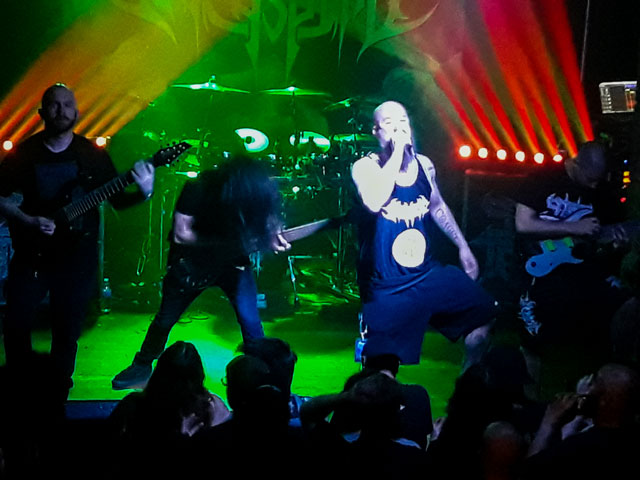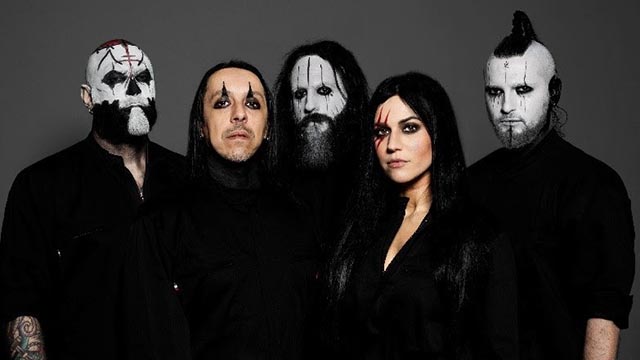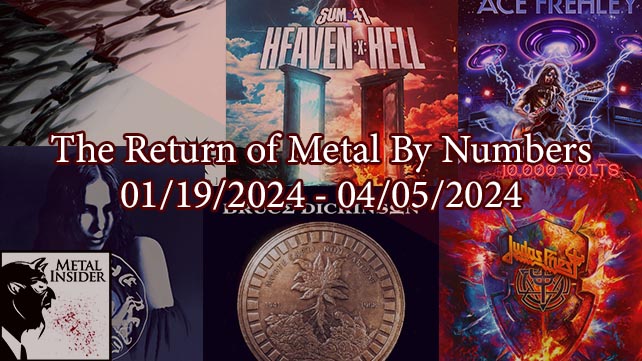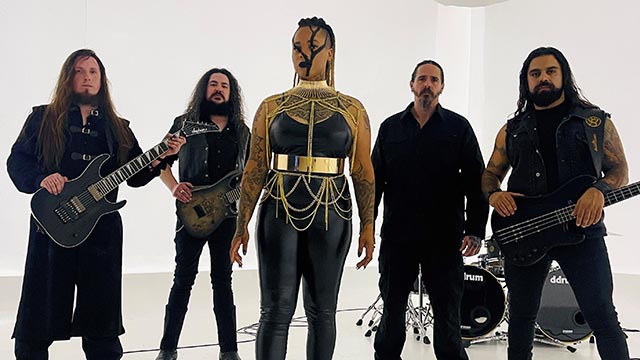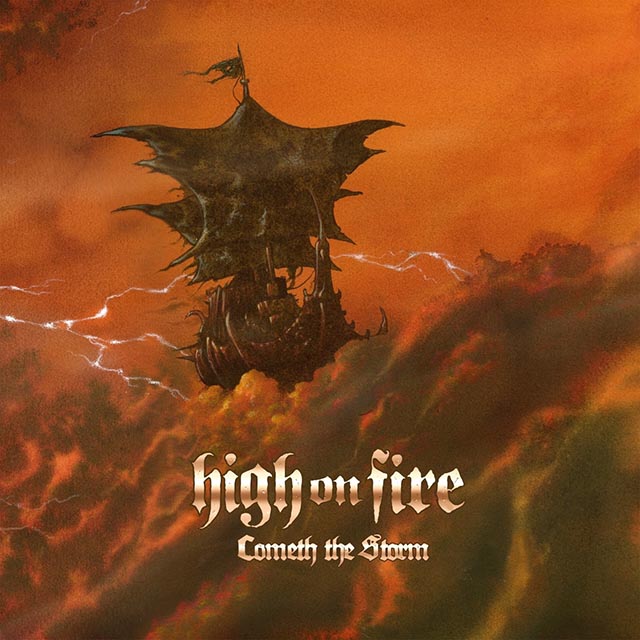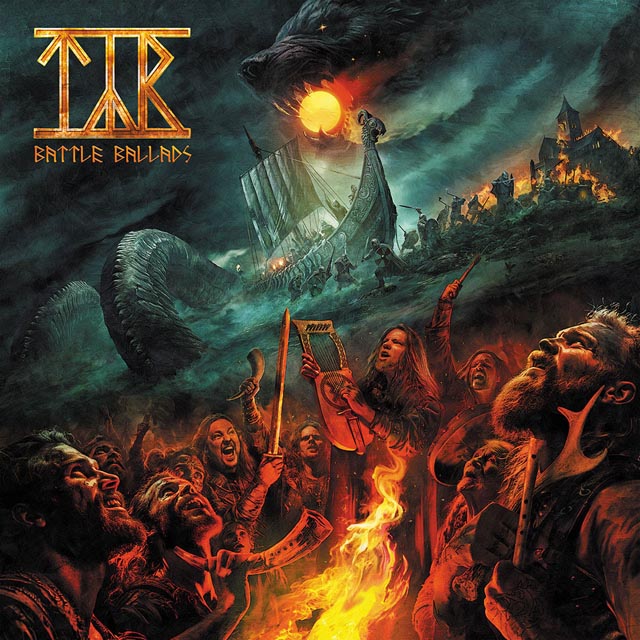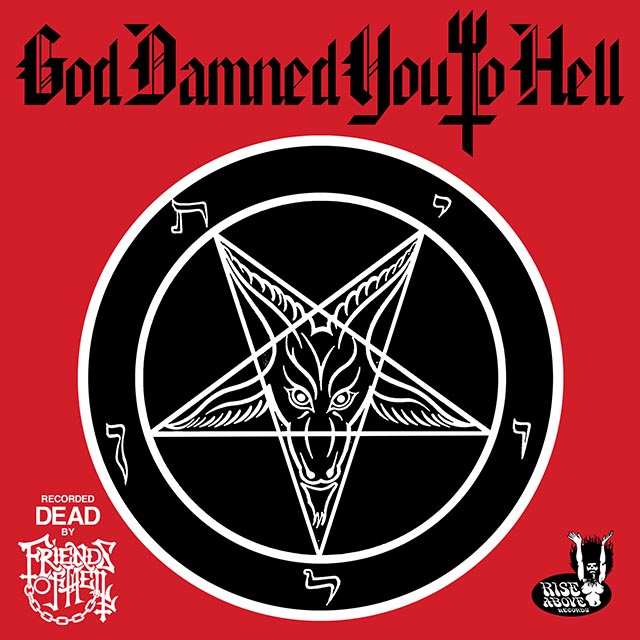
Archspire recently wrapped up Tech Trek V and Metal Insider caught up with vocalist Oliver Rae Aleron and bassist Jared Smith at their stop in Philadelphia, PA. We spoke about a variety of things, most especially that the band is already working on new material.
You guys are in a very niche genre. What are the challenges in terms of being discovered? What’s it like trying to get your music and your name out there when there’s so much that’s out there already?
Oli: Well, I think that it’s about just how much effort you put in to it. It really is that sort of thing where the more work you put into it the more you get out of it. And I don’t know how specific it is to actually what you’re playing as much as how you’re marketing yourself. Touring is the number one thing and just doing it too much… Not too much, not exhausting our market, but constantly thinking about how to be on the road and how to get your music to more people. Even though it is a niche genre, I think that… And it is hard to stand out in that. There’s a few things you can do to sort of to help that along. And one of them is just really putting your name out there however you can. The Stay Tech thing was something that we came up with so that we could have some sort of slogan so that we could market ourselves easier beyond the band… Sort of encompass the genre a bit if we could and that’s kind of helped. We see people that have Stay Tech tattoos that, we’re not their favorite tech band but they’ve encompassed that as part of the genre. Things like that have helped us out a lot, but yeah, musically I don’t really know.
We always push each other and make fun of each other so that we’re always trying to get better at what we’re doing. Because we’ll call each other out if we’re not. If somebody writes a riff and we don’t like it, we’re not going to be nice about it, we’re not going to be polite about it. It does sort of force you to push yourself a bit creatively in an aggressive way but it works. Yeah.
It kinda pushes you to do something different. Also, I think, musically what we tried to do more on the last album that we had before it through all the extreme style of music try to have something that people can take from the music. Have a catchy part in the song, like say the name of the song in the song that’s audible somewhat so people will be like, “Oh it’s a whole bunch of noise. But then I remember the name of the song.” Which I think that a lot of people in the genre overlook and they just go crazy all the time and there’s nothing that an average listener could take away from it. I think that does help to distinguish yourself in the genre.
What are your feelings on services like Spotify and Pandora? Do you think it’s good for bands like you guys or not so good or indifferent?
Jared: Double-edged sword. It gets your name out there.
Oli: We make a killing. We make a killing on Spotify. {laughing} Have we actually ever seen any money from anywhere?
Jared: Probably not.
Oli: I don’t think so.
Jared: The no money part sucks, but it gets your name out there. People listening to your music and not buying your album.
Oli: Yeah. But nobody banks on album sales, or they shouldn’t anyway, so yeah. You should be a live band now, and if you’re not a live band, then you’re not gonna make it at all.
Jared: You have to tour.
Oli: You have to tour. And yeah, and I think it’s cool because that’s what I do.
But with that being said there is this kind of resurgence in vinyl, even a resurgence in CDs. And are you starting to see some interest, some more interest in terms of CD sales, lately or…
Jared: Vinyls are more… Sort of seem to come back a lot. You get really cool colored vinyls and you make them unique and then people come out and they buy one of every vinyl. They’ve got a “collect them all” sort of aspect to your music, that is not necessarily even about the music. It’s just another piece of merch for people to… That they can get.
Do you think part of it also especially you guys, you guys have some really intricate art work, do you hear about folks telling you like, “Hey I bought the vinyl, so I can put it in my office.” I don’t… It’s like I have a vinyl that I hang in my office.
Oli: Yeah, people hang the vinyl. And it’s also a different, it’s not a different mix but it’s mastered differently, so it does have a different quality of sound to it, that a lot of people prefer. Which I do notice slightly when I put on a vinyl it does sound a bit more interesting to the ears. For whatever reason, I don’t know why that would be.
You guys were nominated for a Juno Award, in Canada. We’re a US-based web magazine. Can you tell us a bit about the Junos and what’s like being nominated for a Juno Award, which is a pretty big deal, in Canada?
Jared: I’s essentially the Canadian Grammy. And they just introduced the Metal section of the Junos a few years ago. But it was great to be nominated. In Canada it seems that they actually nominate actual metal bands.nWhich is really cool, for a death metal band as extreme as us to get any sort of mainstream recognition is fantastic…
Oli: Yeah, that was the coolest part about it. It’s just getting that mainstream recognition, for a band like us that’s pretty much inaccessible for the average person to listen to, or want to listen to. And it was just a cool experience. We lost it, but it was fun, we had… Just got wasted for three days, and went to all these events. Nice cocktails. Got to wear a suit. I think Toby’s suit was a little weird. No, Dean’s suit was a little weird.
Jared: Dean, Dean really went for it. He had this big puffy…
Oli: He had the big puffy tweed guy’s suit. It wasn’t a modern classic. It was like a wedding suit..
Jared: He had the, I don’t know what you call them, the cloth for your pocket.
Oh the pocket square.
Oli: He had pocket square?
Jared: He had a couple of them… He could swap them out for every day.
Oli: Yeah, it was a weird and fun experience…
Jared: They played a clip of our music. Five seconds of our music when they mentioned our name during the nomination. You got this huge room of a couple thousand people being forced to listen to this brutal blast beats for five seconds, it’s like what the hell is going on? That was pretty sweet.
Talking a little bit more about Canada. You guys are doing this trek and you’re doing the Midwest, you’re doing the east coast to the west coast, but you’re based out of British Columbia, right? Can you tell us, are there any differences in the metal scene, between Western Canada and the United States? Do you… Is there anything that kinda jumps out at you when you cross the border, or is it fairly similar?
Jared: Canada’s got this thing where all the bands in Canada are a little bit smaller so even the ones that tour, there’s a real sense of community when you tour Canada. People really get into that. Yeah.
Oli: But there’s a huge divide between the East Coast and West Coast for metal in Canada. But dropping down from Vancouver into Seattle or Portland, I don’t know if there’s much of a change. We have a lot of Doom in Vancouver. That’s really popular right now.
What are you guys working on in terms of new music?
Jared: We’re writing, we’ve got half of two songs done, maybe.
Oli: Yeah, and then we’ve stockpiled some riffs.
Jared: We… After this tour and then we go to Europe for a couple festivals then we’re home in July and we’re back to writing, that’s sort of the end of the big touring for a few months.
Oli: For like four months of writing at home.
Jared: We’ll grind out hopefully a few more songs.
Oli: We have pretty good writing schedule now because now that we do this full time, we have four days a week during the day that we get together and write. Before we were writing the last album we were also working day jobs so it was a lot harder just for your productivity.
So the tech-death scene’s heating up a bit. What do you guys see going on in the future of this genre? Do you see more bands? Do you see fewer bands? Do you see more bands breaking out?
Oli: I think it is growing, as a genre. Growing faster than other genres, maybe, I think. We’ve seen a lot of bands get not as heavy. Bands of the genre tend to sort of get sick of the genre and then try to break new ground by going a bit in a different direction, that’s not as heavy or fast. From what we’ve seen.
And why are they doing that?
Oli: I don’t know whether it’s to… I mean, because it is like, it’s a lot of like, grunt work of playing the genre. It’s not immediately rewarding and there’s lot of years of doing the same thing. You play shows when you think you’re evolving and then you play dead shows, and then I can see how your brain might be like, “Well maybe it’s you know, if we add someone singing or we don’t play as fast, maybe we’ll hit at a, widen our market a bit easier.” But then they end up sort of shooting themselves in the foot with their original fans. We see that happening a lot, so as… But where I see the other side of it going… ‘Cause it can’t really go any faster, I don’t think, I don’t know. But then that Slayer said that too, so I don’t really… {laughter}
You guys are playing in a little while so how do you guys warm up? You guys play ridiculously fast and you got more strings than most bands have on instruments. So what do you guys do to get loose and to get ready for a show?
Jared: This far into a tour, it’s pretty minimal, you pick it up and it’s like, you play and it feels alright. I think the most important thing is like, stretching and not even… Obviously, you wanna play your guitar before you get on stage and like, warm up for 20 minutes or whatever, but stretching and doing exercises for your core so you don’t throw your back out.
Oli: I don’t eat four hours before I play just so that I’m not getting fucking heartburn or burping up shit while I’m trying to sing, and then… Yeah, I mean, sometimes if I’m really… I’ll do jump rope just to get my heart rate up, so that I have a bit more energy on stage, ’cause if you’re lying around all day, sitting around all day it’s kinda hard to get that going. Yeah, it’s kind of minimal warm-up, really.

